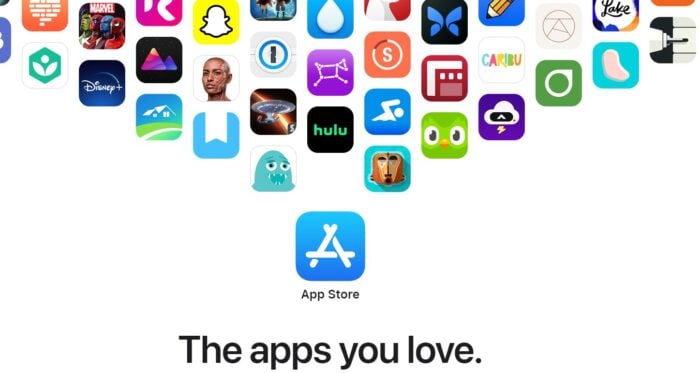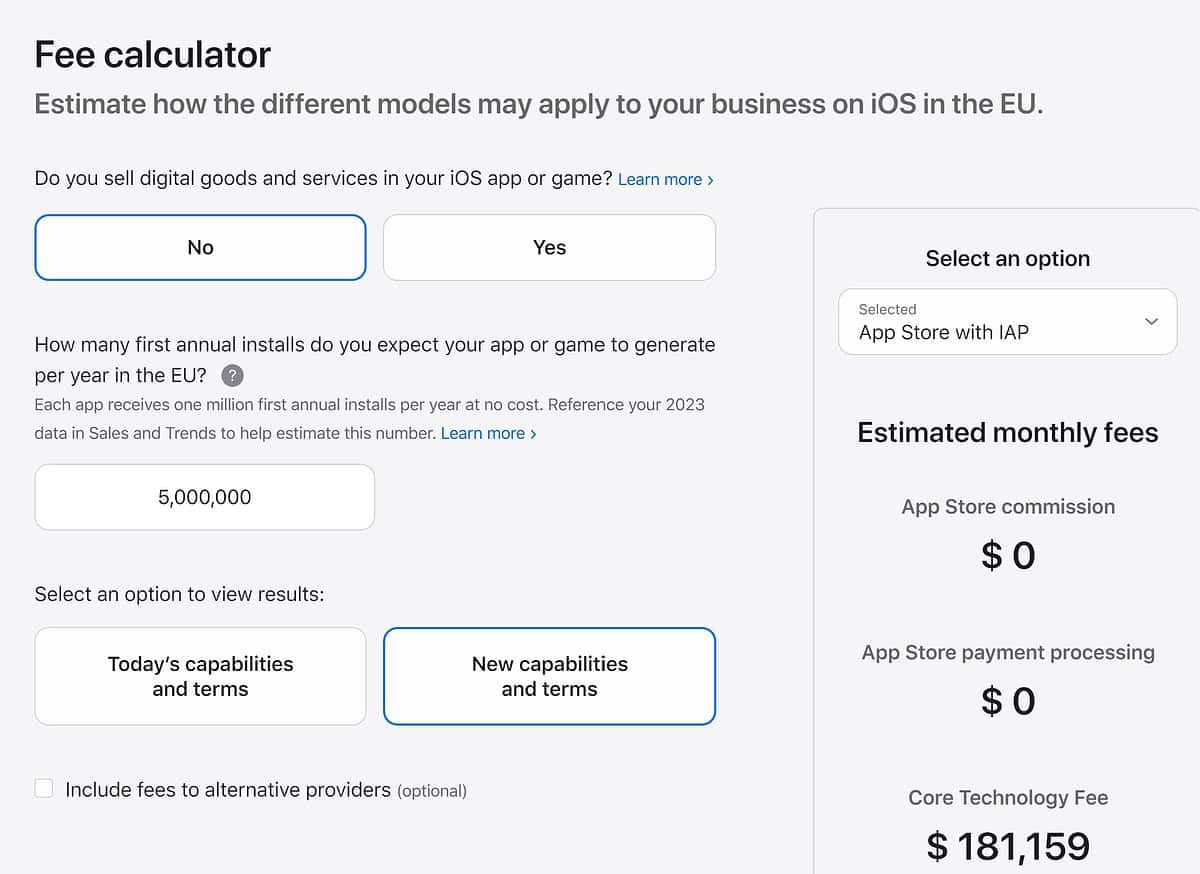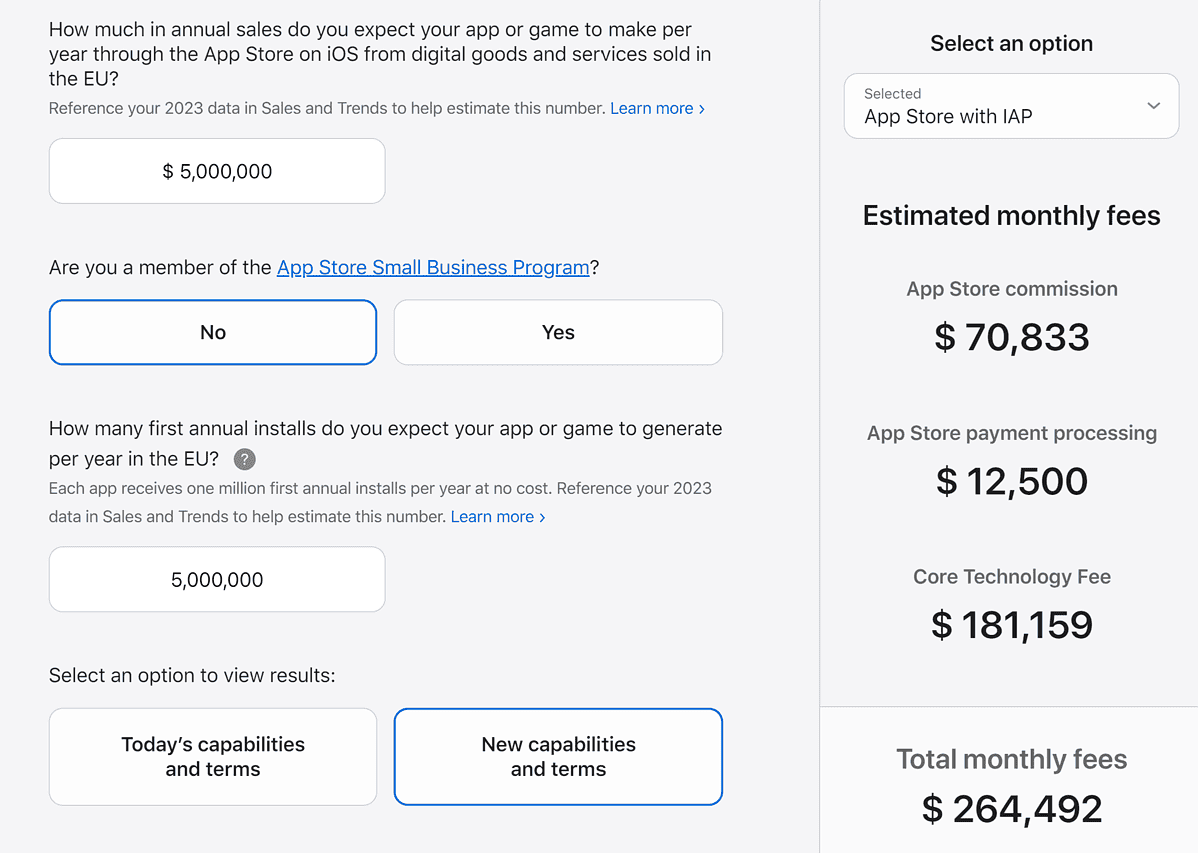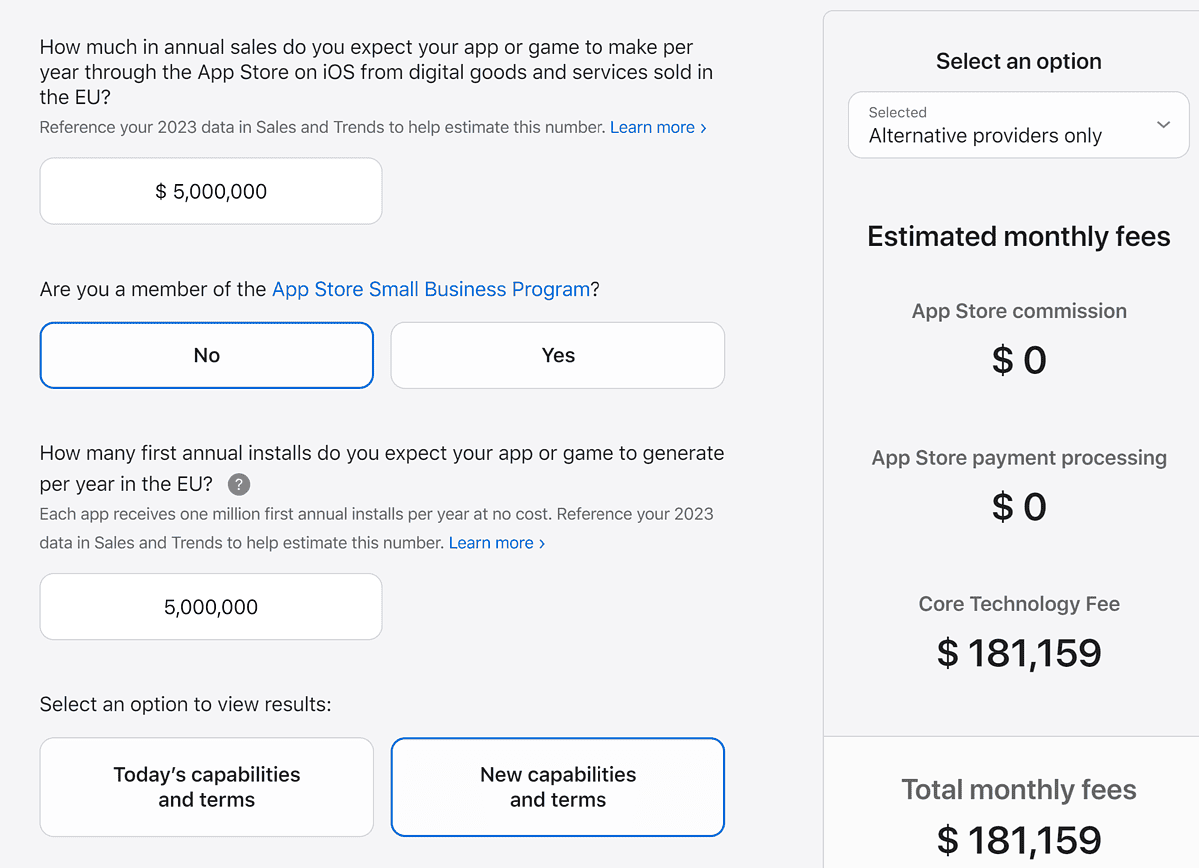Apple's App Store changes in the EU is a fit case for malicious compliance
4 min. read
Published on
Read our disclosure page to find out how can you help MSPoweruser sustain the editorial team Read more
Key notes
- Apple’s plan to thwart Europe’s new Digital Markets Act law is a devious new instance of Malicious Compliance.
- By offering developers a false choice between two illegal options, Apple is trying to preserve its monopoly over the app market and extract more fees from its users and partners.

To comply with the upcoming DMA in the European Union, Apple today announced a number of changes to its App Store policies. Some of the notable changes include support for 3rd party browser engine, the ability for 3rd party apps to access NFC, support for 3rd party app stores, and more.
Also today, Apple announced new business terms available for developers in the European Union. Developers can choose to adopt these new business terms, or stay on Apple’s existing terms. However, to use the new capabilities for alternative distribution or alternative payment processing, developers have to choose the new business terms. The new business terms come with a new fee structure that makes the case for malicious compliance.
Malicious compliance is the act of intentionally inflicting harm by strictly following orders, rules, or policies with the knowledge that compliance with the policy will not have the intended result.
The new business terms for iOS apps in the EU have the following three elements:
- Reduced commission — iOS apps on the App Store will pay a reduced commission of either 10 percent (for small businesses alone) or 17 percent on transactions for digital goods and services.
- Payment processing fee — iOS apps on the App Store can use the App Store’s payment processing for an additional 3 percent fee. Developers can use a payment service provider within their app or link users to their website to process payments for no additional fee to Apple.
- Core Technology Fee — iOS apps distributed from the App Store and/or an alternative app marketplace will pay €0.50 for each first annual install per year over a 1 million threshold.
The Core Technology Fee will force developers not to take up the new business terms. If you are a developer, you can check out the fee calculator here to know the exact amount you will need to pay for Apple. Check out the below two examples:


If your new viral app had 5 million downloads and you generated 5 million in revenue from these downloads, you will pay nearly 3.1 million in payment to Apple!

If you choose to distribute outside Apple, you will end up paying $2.1 million out of the $5 million revenue you generated. Imagine, you generate less than 2.5 million in revenue, you will end up paying Apple out of your packet.
Epic CEO Tim Sweeney commented the following regarding Apple’s App Store changes:
Apple’s plan to thwart Europe’s new Digital Markets Act law is a devious new instance of Malicious Compliance. They are forcing developers to choose between App Store exclusivity and the store terms, which will be illegal under DMA, or accept a new also-illegal anticompetitive scheme rife with new Junk Fees on downloads and new Apple taxes on payments they don’t process. Apple proposes that it can choose which stores are allowed to compete with their App Store. They could block Epic from launching the Epic Games Store and distributing Fortnite through it, for example, or block Microsoft, Valve, Good Old Games, or new entrants.
The Epic Games Store is the #7 software store in the world (behind the 3 console stores, 2 mobile stores, and Steam on PC). We’re determined to launch on iOS and Android and enter the competition to become the #1 multi-platform software store, on the foundation of payment competition, 0%-12% fees, and exclusive games like Fortnite. Epic has always supported the notion of Apple notarization and malware scanning for apps, but we strongly reject Apple’s twisting this process to undermine competition and continue imposing Apple taxes on transactions they’re not involved in. There’s a lot more hot garbage in Apple’s announcement. It will take more time to parse both the written and unwritten parts of this new horror show, so stay tuned.
Apple’s plan to thwart Europe’s new Digital Markets Act law is a devious new instance of Malicious Compliance. By offering developers a false choice between two illegal options, Apple is trying to preserve its monopoly over the app market and extract more fees from its users and partners. Apple is also attempting to dictate which stores can compete with its App Store. Apple’s announcement is full of misleading and harmful statements that need to be exposed and challenged. The future of the digital market depends on the outcome of this epic battle.









User forum
1 messages